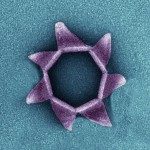Lien vers Pubmed [PMID] – 19404443
HFSP J 2007 Sep;1(3):156-68
The study of the origin of life covers many areas of expertise and requires the input of various scientific communities. In recent years, this research field has often been viewed as part of a broader agenda under the name of “exobiology” or “astrobiology.” In this review, we have somewhat narrowed this agenda, focusing on the origin of modern terrestrial life. The adjective “modern” here means that we did not speculate on different forms of life that could have possibly appeared on our planet, but instead focus on the existing forms (cells and viruses). We try to briefly present the state of the art about alternative hypotheses discussing not only the origin of life per se, but also how life evolved to produce the modern biosphere through a succession of steps that we would like to characterize as much as possible.

